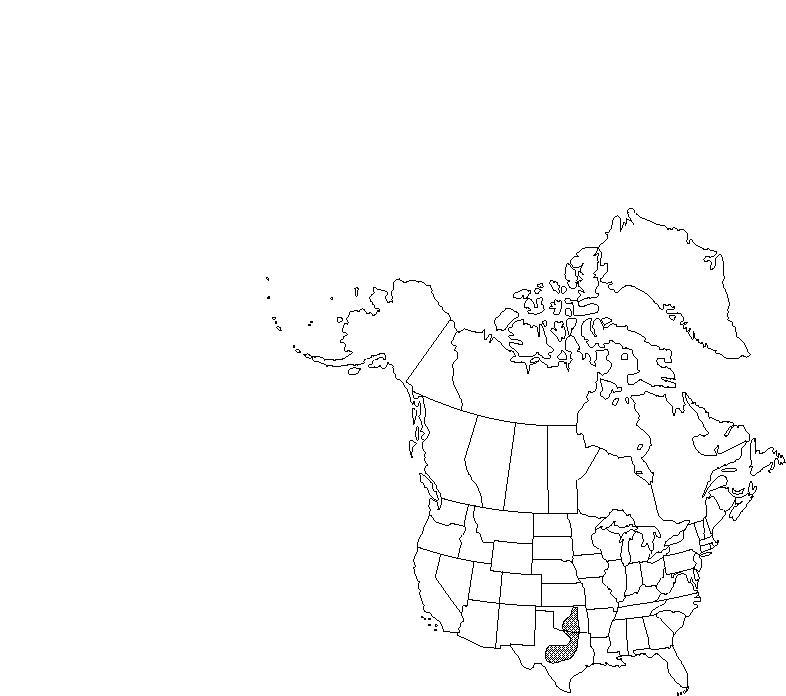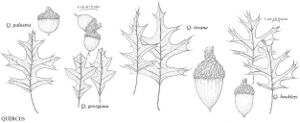Quercus buckleyi
Taxon 34: 225. 1985.
Trees, deciduous, to 15 m. Bark gray and smooth or black and furrowed. Twigs grayish brown to red-brown, rarely somewhat yellowish or gray, 1.5-3 mm diam., glabrous. Terminal buds grayish brown to reddish brown, ovoid to subfusiform, (2.5-)3-7 mm, scales on apical 1/2 distinctly ciliate. Leaves: petiole 20-45 mm, glabrous. Leaf blade circular or broadly elliptic to obovate, 55-100 × 51-112 mm, base cuneate to truncate, often inequilateral, margins with 7-9 lobes and 12-35 awns, lobes oblong to distally expanded, apex acute to acuminate; surfaces abaxially light green or coppery green, glabrous or with small, axillary tufts of tomentum, adaxially shiny or glossy, glabrous, veins raised on both surfaces. Acorns biennial; cup goblet- to cup-shaped, rarely saucer-shaped, 5-11.5 mm high × 10-18 mm wide, covering 1/3-1/2 nut, outer surface glabrous to sparsely puberulent, inner surface glabrous except for a few hairs around scar, scales acute, less than 4 mm, occasionally tuberculate, especially at base of cup, tips appressed; nut broadly ovoid to broadly ellipsoid, rarely oblong, 12-18.5 × 8-14 mm, occasionally with faint rings of pits at apex, glabrous or sparsely puberulent, scar diam. 3.5-8 mm.
Phenology: Flowering spring.
Habitat: Limestone ridges and slopes, creek bottoms, occasionally along larger streams
Elevation: 150-500 m
Distribution

Okla., Tex.
Discussion
For many years the names Quercus texana, Q. rubra var. texana, and Q. shumardii var. texana were erroneously used for Q. buckleyi (L. J. Dorr and K. C. Nixon 1985).
Quercus texana reportedly hybridizes with Q. marilandica (= Q. ×hastingsii Sargent). Quercus ×hastingsii may be derived from Q. marilandica var. ashei (D. M. Hunt 1989). Hybridization with Q. shumardii may also occur (L. J. Dorr and K. C. Nixon 1985).
Selected References
None.
